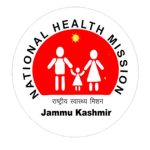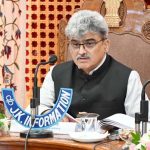New Delhi, Aug 06: Union Minister Dr Jitendra Singh on Tuesday said India has emerged as a world-class cost-effective healthcare destination and a leader in the global pharmaceutical industry.
Addressing the “Global MedTech Summit 2024” organised by the Confederation of Indian Industry (CII) at Hotel Le Meridian, Dr Singh, who is also a distinguished Professor of Medicine & Endocrinology, said there is a transformation in healthcare under Prime Minister Narendra Modi’s government.
“Prime Minister Narendra Modi’s government has laid down a vision for a healthy India, focusing on the elimination of communicable diseases and prevention of non-communicable diseases, developing health indices, and making steady progress,” Dr Singh said. He also highlighted India’s execution of the world’s largest COVID-19 vaccination drive, reaffirming the government’s commitment to accessible healthcare as a right for every citizen.
Dr Jitendra stressed preventive healthcare as a national priority for achieving the vision of India @2047. He expressed concern over the increasing prevalence of morbidities such as Type 2 Diabetes Mellitus, young heart attacks, and malignancies in younger age groups, which threaten to drain the vital youth energy crucial for nation-building and realizing the vision of India 2047.
He advocated for a “PPP + PPP” collaboration, urging the public and private sectors within India to partner with counterparts in other countries. “Such partnerships not only boost economic resources but also enhance knowledge resources,” he said.
Citing the success in the space and biotechnology sectors, the union minister remarked, “Success in the space and biotechnology sectors serves as a role model for integrated partnerships.”
He highlighted the opening of the space sector, which attracted private investment of more than Rs 1,000 crore within a few months, increasing the number of startups from one in 2022 to over 200, some with global potential.
India is now among the top six bio-manufacturers globally, known for cost-effective and efficacy-based bio-manufacturing. Dr Singh acknowledged the Department of Biotechnology’s efforts and achievements in fostering research and development in translational health sciences. The bio-manufacturing and bio-foundry sectors have grown significantly from $10 billion in 2014 to $130 billion in 2024, he said.
Dr Jitendra said the medical devices sector is considered a sunrise sector in India. “Under Prime Minister Modi’s leadership, the government is making every effort to make India a manufacturing hub for medical devices. A research group is in place to create indices, draw benchmarks, and propose action plans,” he said.
The minister also highlighted the crucial role of technology in ensuring equitable access to healthcare. The integration of Artificial Intelligence (AI) and Machine Learning (ML) tools can significantly enhance healthcare delivery by improving efficiency, reducing wait times, and enhancing overall service quality.
Sharing his experience with telemedicine, Dr Singh noted its transformative impact in making healthcare services accessible even in the remotest villages of the country. However, he emphasized the need for human intervention to supplement AI, citing the example of a human desk for taking feedback in the CPGRAMS system.










